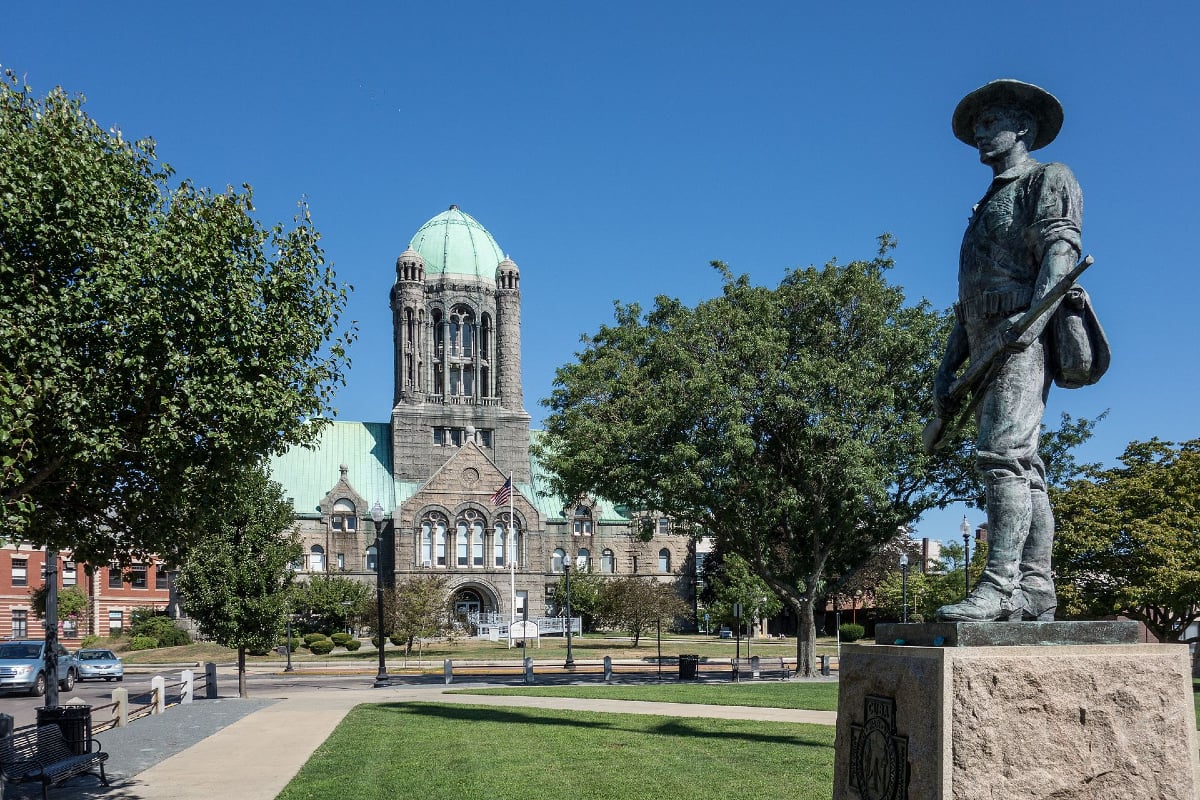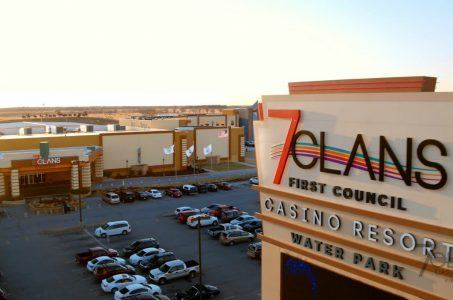Mashpee Wampanoag Sovereignty Win Makes Litigation ‘Moot,’ Feds Say
Posted on: January 24, 2022, 09:28h.
Last updated on: January 24, 2022, 12:52h.
The Mashpee Wampanoag Tribe last month gained the federal legal recognition it has long sought regarding its 321 acres of land in Taunton and Mashpee. In mid-December, the US Department of the Interior deemed the property sovereign territory owned by the Native American people.

The Interior Department, in a legal brief filed earlier this month in Massachusetts’ federal district court, says ongoing or future litigation challenging the tribe’s sovereign ties to the recently designated land is no longer warranted.
Along with uncertainty regarding the feds’ position on the 321 acres that the tribe purchased in 2012, local residents in Taunton where the Mashpees want to build a $1 billion casino resort have for many years challenged the proposed development on numerous legal grounds.
Those challenges are now moot, says the Interior Department.
Plaintiffs’ challenge to the 2015 Record of Decision is moot and their proposed new claims make clear that Plaintiffs only seek to challenge the 2021 decision,” the Interior’s brief argues.
“Plaintiffs’ proposed new claims object to Interior’s determination that it possesses the requisite Indian Reorganization Act authority to acquire the Property in trust for the Tribe, and its determination that the Property is eligible for gaming under IGRA [Indian Gaming Regulatory Act],” the brief continued.
Legal Precedent
The Mashpee Wampanoag Tribe is one of only two federally recognized tribes in Massachusetts. Roughly a decade ago, the tribe partnered with Malaysian gaming conglomerate Genting to build a $1 billion casino resort in Taunton.
Residents, however, interjected. Attorneys representing the locals argued that the federal government since the Mashpees gained federal recognition after the 1934 passage of the Indian Reorganization Act, did not have the authority to take newly acquired lands into trust for the Mashpee community.
Courts and the federal government have tied up the Mashpee casino undertaking ever since.
Under the Obama administration, the DOI ruled that the 321 lands acquired by the Mashpees should be placed in trust. However, the Interior reversed its own decision under the Trump administration and rejected the land, and therefore revoked the Mashpee’s rights to conduct tribal gaming on the property. Interior last month under President Biden returned the department’s decision to the Obama understanding.
Tribal attorneys claim casino opponents have “engaged in a relentless attack” that’s “preventing the tribe from being able to lift itself out of poverty, interfering with the development of tribal housing, and making it increasingly difficult to provide health services to address COVID-19, substance abuse, and mental health.”
Compact Still Needed
After years of legal contentions in a complex case that naturally involved political bickering and three US presidential administrations, much remains unsettled regarding the Mashpee and Genting casino resort ambitions.
Known as the People of the First Light, the Mashpee casino project is to be called First Light Resort & Casino. But for the project to proceed to construction and warrant a $1 billion price tag, the tribe must convince the state to enter into a Class III gaming compact to authorize slot machines and table games at the facility.
IGRA allows federally recognized tribes to conduct Class II gaming — bingo-based games, punch-tabs, and pull-tabs — on their sovereign lands. But states possess the power to dictate whether Las Vegas-style slots and tables are permitted. Sports betting also falls under the Class III gaming umbrella.
Related News Articles
Most Popular
Las Vegas Overstated F1 Race’s Vegas Impact — Report
Mega Millions Reportedly Mulling Substantial Ticket Price Increase
NoMad Hotel to Check Out of Park MGM on Las Vegas Strip
Most Commented
-
End of the Line for Las Vegas Monorail
— April 5, 2024 — 90 Comments -
Mega Millions Reportedly Mulling Substantial Ticket Price Increase
— April 16, 2024 — 8 Comments -
Long Island Casino Opponents Love New York Licensing Delays
— March 27, 2024 — 5 Comments
















Last Comment ( 1 )
Build the resort and casino in Taunton!!